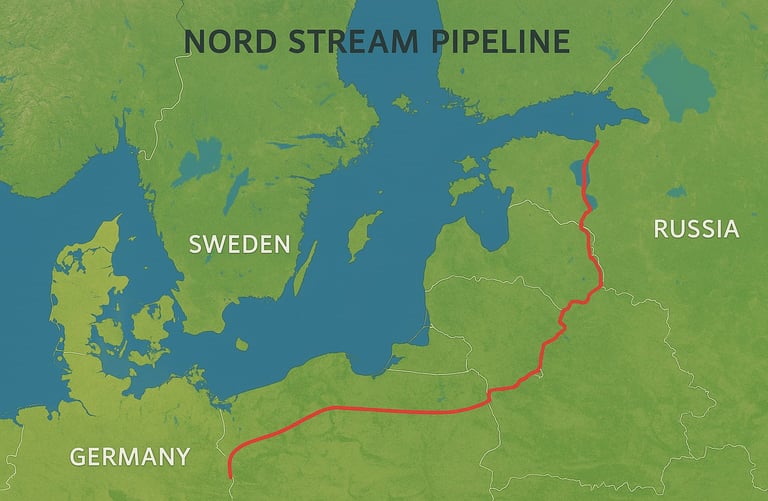Ukrainian Suspect Arrested in Italy Over Nord Stream Pipeline Blasts – Full Details & Current Status
Italian police arrest Ukrainian suspect linked to Nord Stream pipeline blasts. Read full details about the pipeline’s history, current status, and political impact.
Raja Awais Ali
8/21/20252 min read


Ukrainian Suspect Arrested in Italy Over Nord Stream Pipeline Attack: Full Story and Current Status
Rome, August 21, 2025 — Italian authorities have arrested a Ukrainian citizen suspected of involvement in the 2022 Nord Stream pipeline explosions. The arrest was carried out in Milan under an international warrant. According to German investigators, the suspect allegedly provided logistical support for the underwater operation that damaged one of Europe’s most strategic energy projects. The individual is now facing possible extradition to Germany and Denmark, where investigations have been ongoing for nearly three years. This marks a significant breakthrough in a case that has long puzzled European security agencies.
What is the Nord Stream Pipeline?
The Nord Stream pipeline was one of Europe’s largest and most controversial energy projects, designed to supply Russian natural gas directly to Germany while bypassing Ukraine and Poland.
Nord Stream 1: Launched in 2011, running from Vyborg (Russia) to Lubmin (Germany).
Nord Stream 2: Completed in 2021, connecting Ust-Luga (Russia) to Germany, but it never entered commercial operation due to Western sanctions following the Ukraine war.
The pipelines pass through the territorial waters of Russia, Finland, Sweden, Denmark, and Germany, with a combined capacity of 110 billion cubic meters of gas annually. They symbolized Europe’s reliance on Russian energy but also became a flashpoint in geopolitical tensions.
Is the Nord Stream Pipeline Still Operational?
The short answer: No.
In September 2022, powerful underwater explosions damaged three out of four Nord Stream lines, making them unusable.
Nord Stream 1: Shut down after the blasts.
Nord Stream 2: Never went into commercial use and was also damaged.
As of 2025, neither Nord Stream 1 nor 2 is operational, forcing Europe to shift toward Norwegian gas, U.S. LNG imports, and renewable energy sources.
Political Reactions
The Milan arrest has reignited fierce debate:
Russia accused the West of orchestrating the blasts to cut Europe off from Russian energy.
Ukraine has officially denied involvement but continues to be linked to the case by investigators.
European leaders, especially Germany’s Foreign Minister Annalena Baerbock, have stressed the need for a transparent investigation, citing Europe’s long-term energy security.
Donald Trump also weighed in, saying the incident proved Europe’s mistake in “depending on Russia for energy,” urging stronger U.S. LNG partnerships as the “only safe alternative.”
Why This Arrest Matters
The arrest of a Ukrainian suspect in Italy could provide the first solid evidence in a case that has been clouded by speculation and political blame games. If proven in court, it would reshape not only the future of European energy security but also the geopolitical balance between Russia, Ukraine, and the West.
The Nord Stream was never just a pipeline — it was a symbol of Europe’s dependence on Russian gas, the vulnerability of its infrastructure, and the broader power struggle between East and West. This arrest is now at the center of that story.